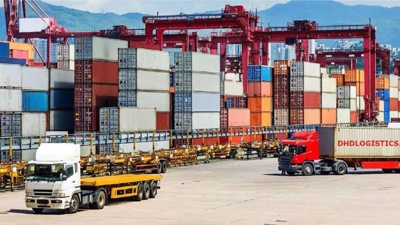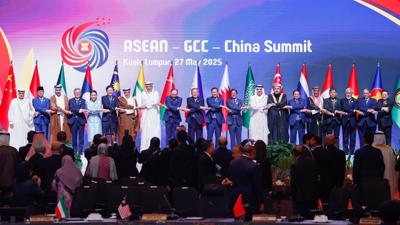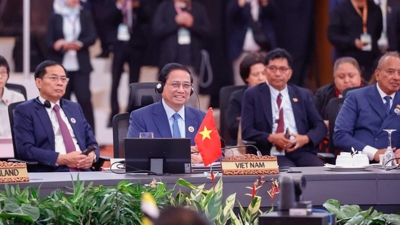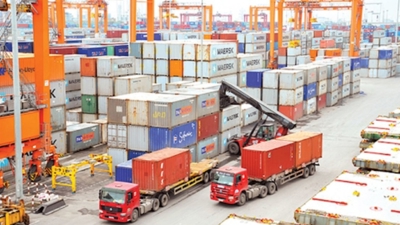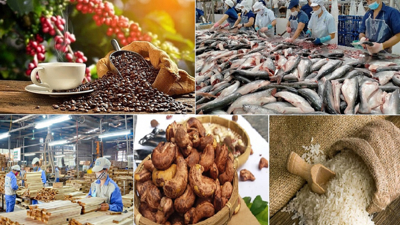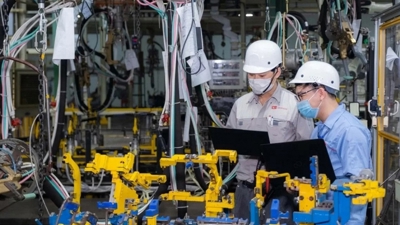Actions needed to overcome non-tariff barriers within ASEAN
Accoriding to experts, non-tariff barriers continue to hinder trade and investment flows in ASEAN.
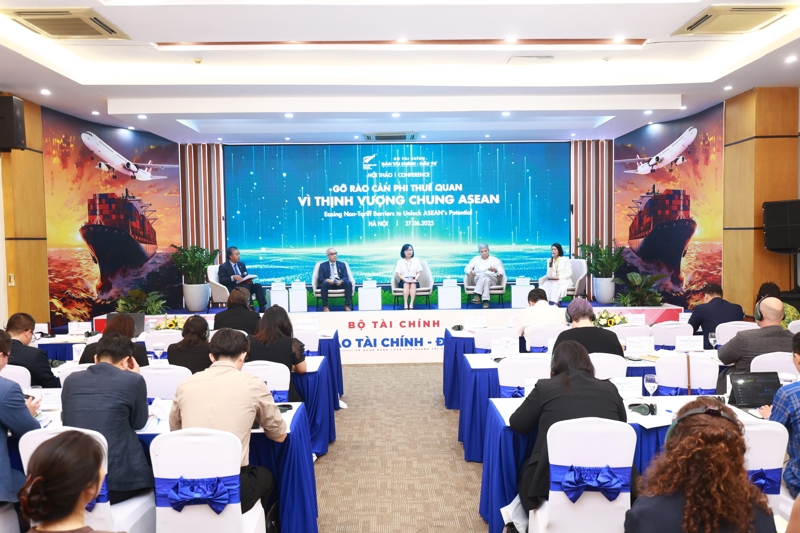
According to experts at a conference titled "Easing Non-Tariff Barriers to Unlock ASEAN's Potential", organized by Vietnam Investment Review (VIR) on June 27, non-tariff barriers (NTBs) remain one of the major obstacles slowing international capital flows and impeding the smooth movement of goods within the region.
Despite average intra-ASEAN tariffs have fallen to below 1 per cent for all members, the NTBs continue to be a persistent challenge for business communities in the member countries.
According to the World Bank, there are currently nine major types of non-tariff measures (NTMs) being implemented globally. Among them, sanitary and phytosanitary (SPS) measures, which cover food safety and animal and plant health, account for 37.5 per cent; while technical barriers to trade (TBTs) also make up 37.5 per cent. Pre-shipment inspections and other procedures account for 1.3 per cent, among others.
Mr. Le Trong Minh, Deputy Editor-in-Chief of VIR, noted that these NTBs are increasingly complex and costly for many businesses, particularly small and medium-sized enterprises (SMEs). SMEs often incur high compliance costs due to the need to retest products according to the varying standards of each ASEAN member state.
Meanwhile, New Zealand Ambassador to Vietnam H.E. Caroline Beresford, also noted that many non-tariff measures (NTMs) such as biosecurity regulations aimed at protecting human, animal, and plant health, are necessary and can enhance trade.
However, when these non-tariff measures (NTMs) are implemented in a way that unnecessarily restricts commerce, they become non-tariff barriers (NTBs). These NTBs disrupt the free flow of goods and services, delay exporters, and undermine the shared goal of deeper regional integration.
From the perspective of the logistics sector, Ms. Chu Kieu Lien, Director of T&M Forwarding, pointed out that many Vietnamese import-export businesses, especially those in agriculture and seafood, are facing a range of NTBs. These include overlapping technical standards, stringent food safety inspections, inconsistent customs infrastructure, and a lack of coordination among regulatory bodies.
“Such barriers significantly raise operational costs, from quality control expenses, hiring of specialized staff for import-export procedures, to warehousing costs. Most critically, these issues directly affect delivery timelines, which are essential in the logistics industry,” Ms. Lien stressed.
A typical example of the complexity of NTBs is seen in Vietnam’s efforts to expand exports to Halal markets. Products destined for Islamic countries such as Indonesia, Malaysia, and Brunei are required to obtain Halal certification. However, the certification process can take three to six months, involving high costs and complexity that vary by country and supply chain.
“This poses a major challenge for Vietnamese businesses looking to enter the Halal market and puts them at a disadvantage compared to local suppliers who are already familiar with the system and requirements,” said Ms. Le Hang, Deputy General Secretary of the Vietnam Association of Seafood Exporters and Producers (VASEP).
According to the United Nations Conference on Trade and Development (UNCTAD), trade costs associated with NTBs account for 2 - 4 per cent of the total value of goods.
Meanwhile, a study by the Global Trade Analysis Project (GTAP) at Purdue University (USA) estimates that a 10 per cent reduction in NTB-related trade costs could boost ASEAN’s trade by 3 - 4 per cent annually. Therefore, the measures to address non-tariff barriers are necessary to boost trade values.
However, experts noted that removing NTBs does not equate to unconditional market opening. The focus should be on eliminating unreasonable and overlapping regulations, harmonizing technical standards across ASEAN member states, and promoting regulatory transparency and predictability.
In Vietnam, businesses need to take proactive steps to overcome NTBs. Particularly in the seafood export sector, Ms. Hang emphasized the importance of businesses being continuously “proactive and adaptive” in response to increasingly stringent international market requirements.
First, businesses must stay abreast of market dynamics, especially supply-demand trends and relevant regulations in their target countries.
Second, they need to enhance their capacity to gather, interpret, and update information on domestic and international technical standards through training programs and workshops.
Third, enterprises should invest in science and technology, promote innovation, and apply advanced technologies across their production and processing chains to improve product quality and meet requirements of demanding markets such as Halal countries.
Along with that, Ambassador Beresford noted that although governments in the Asia-Pacific region, including Vietnam and New Zealand, have made considerable progress in reducing NTBs, much more remains to be done. She emphasized that these efforts require collective action from all stakeholders.
In particular, the Ambassador highlighted the vital role of business communities in reducing NTBs. Sharing practical experiences can help policymakers identify policy gaps that need adjustment. Meanwhile, communication and public awareness efforts play a key role in spreading constructive messages on NTBs.
“As government officials and policymakers, we must listen carefully and translate what we hear into effective, transparent, and appropriate regulations that support enterprise and remain in line with our international commitments,” Ambassador Beresford affirmed.


